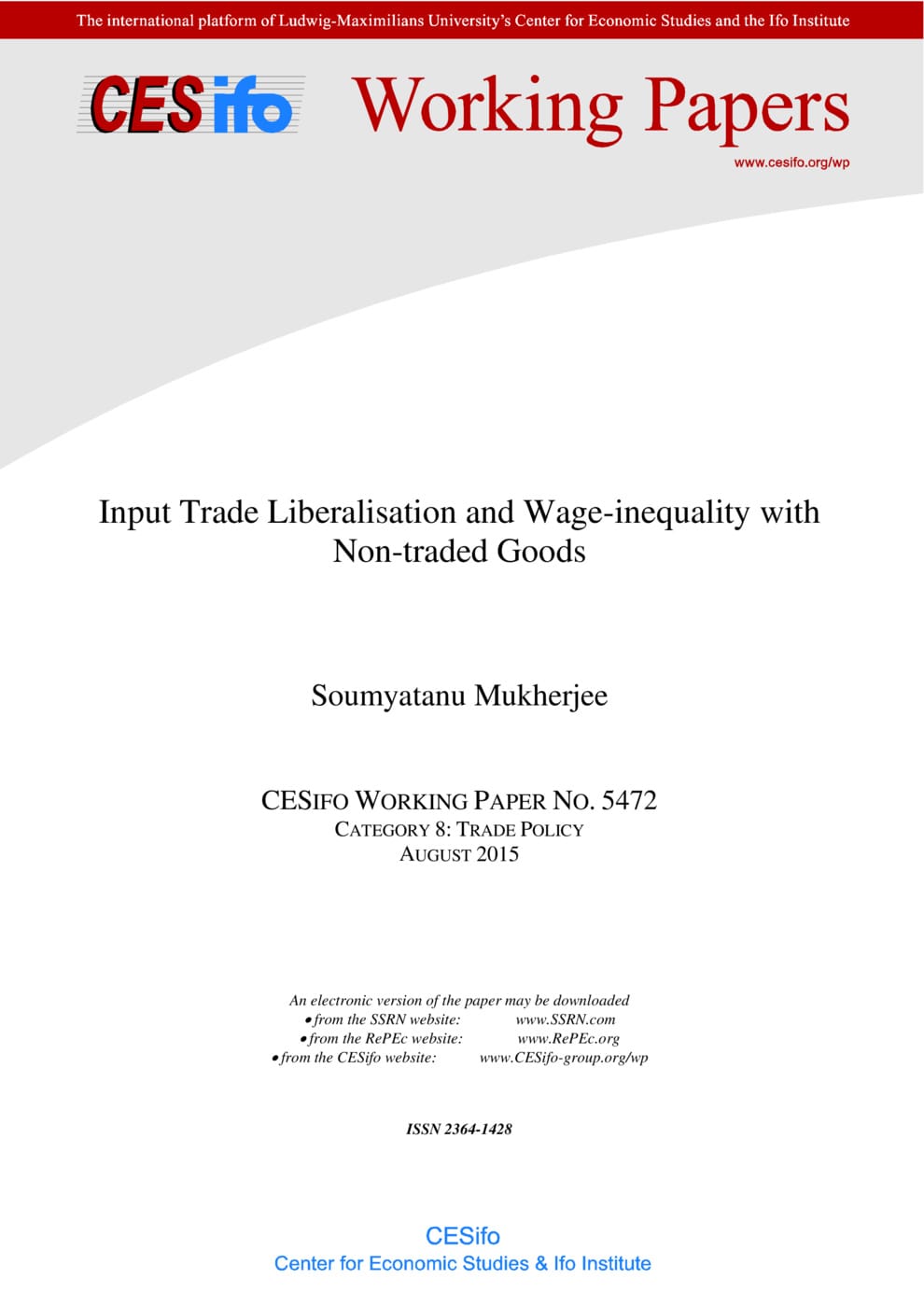Input Trade Liberalisation and Wage-inequality with Non-traded Goods
CESifo, Munich, 2015
CESifo Working Paper No. 5472

This paper develops a multi-sector full-employment general equilibrium model for a typical developing country (DC hereafter) like India with internationally non-traded goods and international fragmentation in skill-intensive production, to explore the general equilibrium impact of such trade-induced growth in the skill-intensive sector on informal sector wages and employment and most importantly, how this impact is mediated through the existence of finished non-tradable and the corresponding domestic demand-supply forces. The economy is also characterised by dual unskilled labour market with unionized formal and non-unionised informal sectors, consistent with the empirical literature on India. The idea is to judge theoretically how far the growth in the skill-intensive sector due to the tariff-reduction on the imported inputs in the skill-intensive production has contributed to the movement in informal unskilled wage and consequently to the direction of relative wage-gap. Numerical analysis has also been performed to simulate how the changes in elasticities of factor substitution in production in different sectors account for the movement in informal wage and therefore the movement in skilled–unskilled wage gap. This paper challenges the view that the relative wageinequality in a DC like India with rigid organised sector labour market has unequivocally been governed only by the increase in the skilled wages.
Trade Policy
Labour Markets